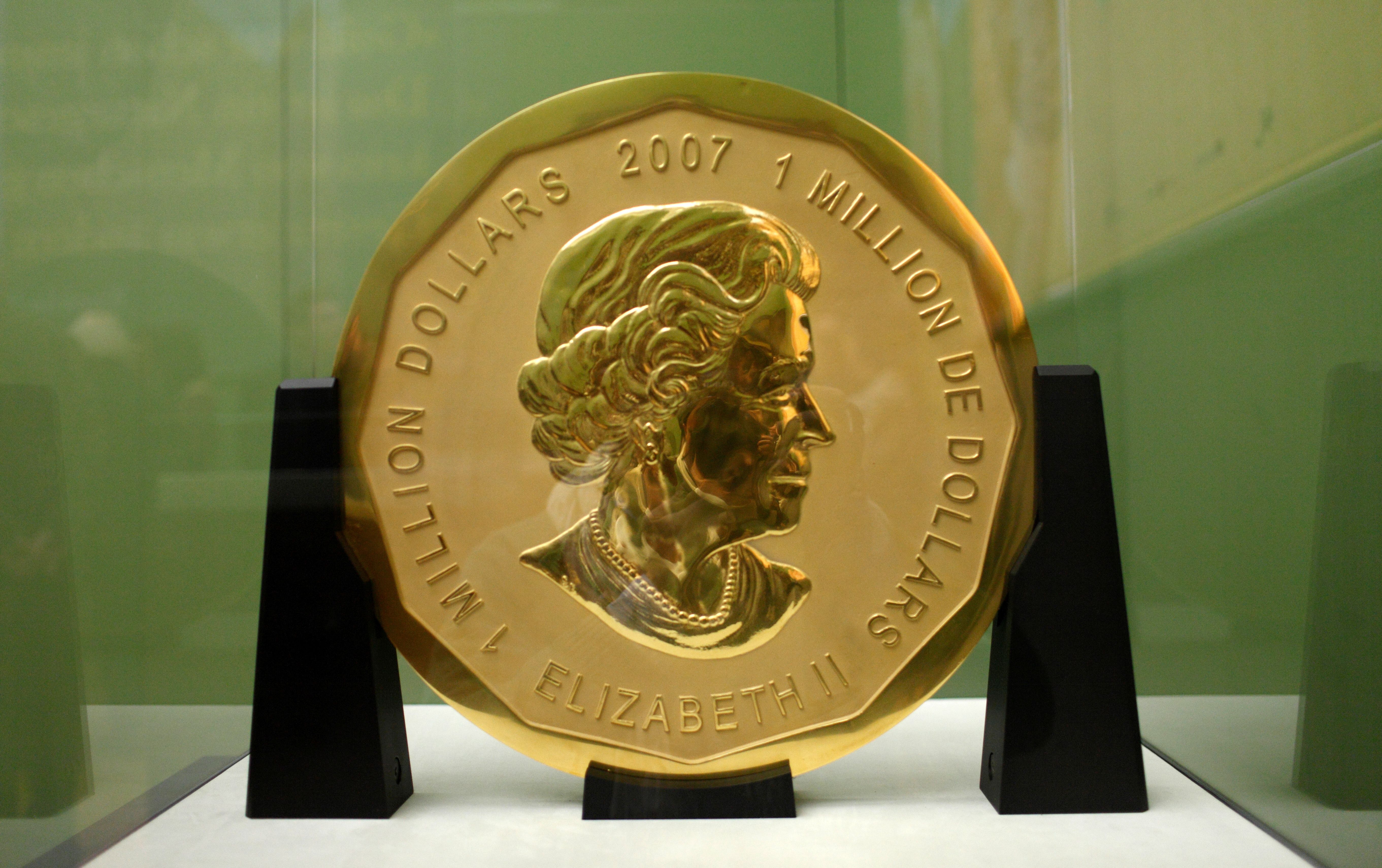
Three men who made away with one of the world’s largest gold coins from a Berlin Museum have been sentenced to prison.
Cousins Ahmed and Wissam Remmo broke into Berlin’s Bode Museum on the night of March 27, 2017, with the assistance of an inside man: Denis W., a childhood friend who had been hired as a security guard at the institution earlier that month. Using a skateboard and wheelbarrow, the crafty thieves absconded with “Big Maple Leaf,” a commemorative coin weighing in at a whopping 221 pounds that had been issued by the Royal Canadian Mint in 2007.
After a trial that lasted 41 days in court over the span of a year, Ahmed, 21, and Wissam, 23, were each sentenced to four-and-a-half-year prison sentences. (Because the Remmos were, respectively, 18 and 20 years old when the crime occurred, they were sentenced as juveniles.) Denis W. received a sentence of three years and four months. A fourth defendant was acquitted.
The Bode Museum in Berlin. Photo: Thomas Wolf via Wikimedia Commons.
The 99 percent pure gold coin, valued at roughly €3.3 million ($4.3 million), was on loan from a private collector at the time of the theft. It hasn’t been seen since. Gold particles in the convicts’ getaway car and on their clothes led experts to believe it was broken down, melted, and sold soon after the incident. Another dead giveaway: Investigators also found a history of detailed searches on how to break down pieces of gold on Wissam’s phone.
Other evidence that led to the arrest of the men included security footage of three black-clad figures who matched their measurements walking the escape route outside of the Bode on a night prior to the theft. A rare Armani jacket identified in the footage was found in Wissam’s apartment, as was a pair of gloves that contained shards of glass matching those of the window through which the thieves entered the building.
Two of the defendants sit next to their lawyers in the courtroom and cover their faces on February 20, 2020 in Berlin. Photo: Paul Zinken/dpa via Getty Images.
Denis W., who worked the night shift on the days leading up to the robbery, was seen shopping for high-end cars and jewelry shortly thereafter. In addition to the prison sentence, he was fined €100,000 ($108,000)—the amount of money authorities believe he was paid for abetting the crime. The Remmos were each fined €3.3 million—the price of the coin.
A fourth defendant, Wayci Remmo, was acquitted of all charges after the judge ruled the evidence against him to be inconclusive.
Following the case’s conclusion, lead prosecutor Thomas Schulz-Spirohn promised to continue his investigation into the Remmo family, which is believed to be connected to one of Germany’s largest organized crime operations.